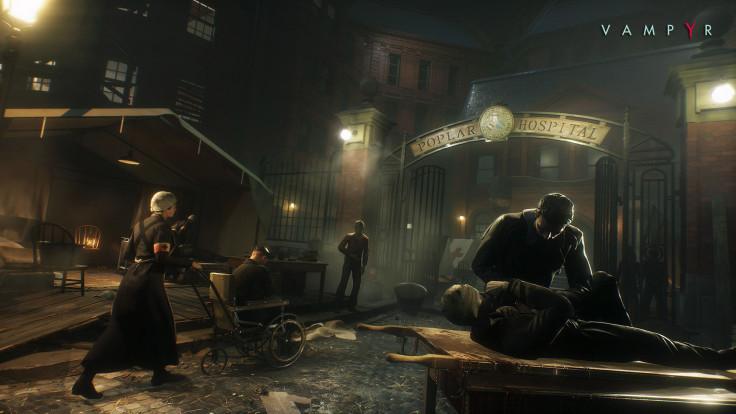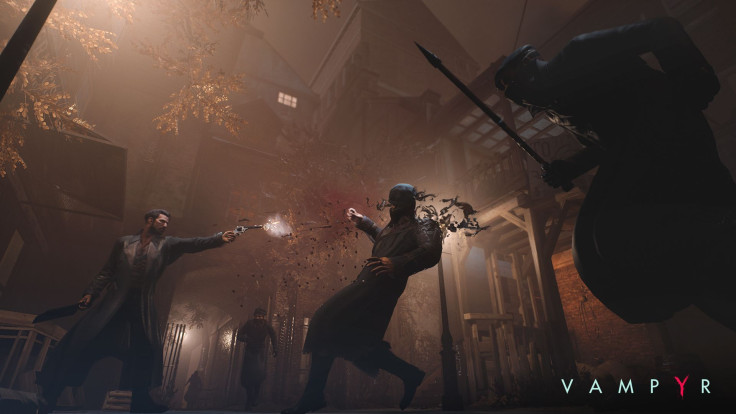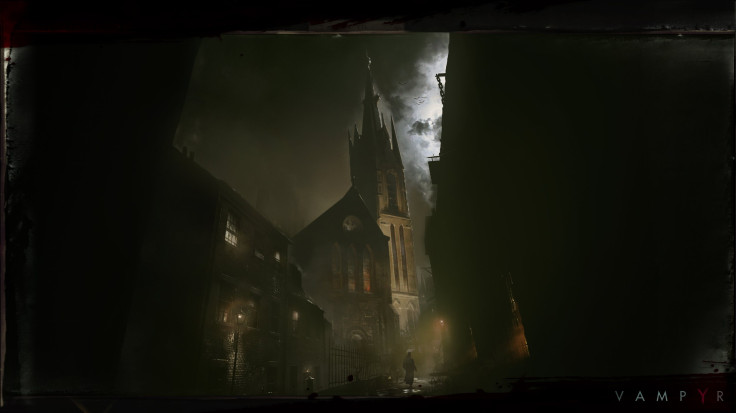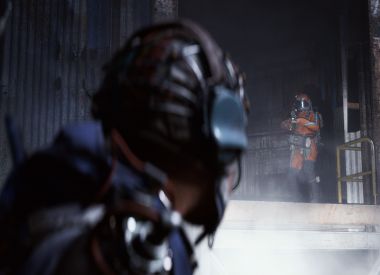My two-hour demo of Vampyr, the hotly anticipated title from Dontnod and Focus Home Interactive, began with Dr. Jonathan Reid having a terrible, horrible, no good, very bad day. He wakes up on a pile of corpses. The world is a dull grayscale except for the vivid, luminescent streaks of blood smeared throughout this plague-ridden English dockside. And the people? Well, it’s hard to see anyone as a person when all his thirsty vampiric eyes can detect are silhouettes of pulsing veins and the beating hearts of yummy circulatory systems. Even the rats taste good. From the very start, Vampyr wants you to know it’s all about the blood.

Soon you’re stumbling through the streets of early 20th-century London, desperate for answers or an escape from this tortured new existence. Dr. Reid even shoots himself in the chest with a pistol, only to confront the horrible truth that not even death can save him. Vampyr gets very heavy very fast, but once the mood and atmosphere settle in, it becomes more of a narrative about reckoning with imperfect people in an imperfect world and less of a Lovecraftian spiral of despair.
The mechanics of the game support this slower pace, mainly by way of a District system that carves the London map up into sections populated by key NPCs, each with their own value. Not just value as citizens who can give you information or have influence, but each NPC has value as a source of blood (and more importantly XP points) that could exponentially increase your strength. You’re going to need it, because combat is challenging and, in my experience, a bit busted.
It’s worth noting two important things: first, I was told ahead of time some tweaks could still happen to combat and second, this was literally the first two hours of gameplay, so I didn’t get deep into the skill tree. I spoke with some devs afterward who explained the difficulty and frustration is designed to make you kill citizens for XP if you’re having trouble since there is no adjusting the difficulty.
And I had a lot of trouble.
Vampyr places a respectable number of weapon types at your disposal. But the speed and contact animations felt inconsistent. For example, upon receiving the first two-handed weapon, you get a prompt to parry attacks with Y. Two seconds later, you fight a tough enemy and say to yourself, “gee, guess this is where I learn about parrying.” You press Y. Two clumsy character animations collide and you clearly didn’t parry. You can’t seem to get the timing right and the camera angles keep shifting. You die several times, try mashing X through the encounter instead, succeed and move on. The same slippage occurred in every combat encounter I had. I’d even get by hit characters who had their backs to me. The targeting system isn’t responsive enough to handle multiple enemies at once, and you always feel a step behind.

Like the combat, Vampyr’s crafting system feels out of place. I didn’t collect enough resources in my demo to upgrade a weapon or make a new medical recipe. Enemies carry bits of loot, which twinkles in every other dark corner. Any upgrades seemed incremental, a few percentage points here or there, and it's unclear if the game presents any opportunities to grind up some XP or gear. From the looks of it, it doesn’t. I’m not sure forcing players into more combat will help the cause, either. Vampyr was at its best when it treated me like a character in a story and not a hero in a game.
There are a lot of deep NPC interactions that have consequences for your character’s level and the narrative (and sometimes both). I wish I had spent more time meandering, especially once I got to the first main hub of the game, instead of chasing a linear path. NPCs have intricate backstories that unfold across many hours of gameplay. The District system, far and away more ambitious than the combat, was impossible to judge in a two-hour demo. The little I experienced gave me hope; it's a big idea, executed well. Fans of deep dives into vampire lore and romanticism will find a rich playground here.
Right now Vampyr doesn’t have a defined audience. Narrative and immersion-driven gamers will find combat gets in the way of a good story, and action fans won’t tolerate a system that lacks precision in a genre that demands it. Everything I liked about Vampyr — the story, the setting, the promise of long-term consequences — was offset by rough combat that shattered the immersion. Vampyr is set for release in June, so I imagine Dontnod is hard at work on those “tweaks” I was told about when they put a controller in my hand. They’re going to need them if they want me to pick one up again.


















